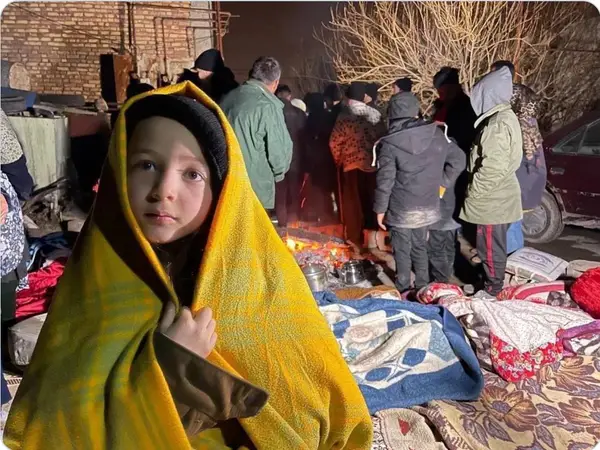The judiciary blocked the bank account of popular footballer Karim Bagheri after he urged Iranians to make donations to the victims of Saturday’s earthquake in Iran.
In an Instagram post Tuesday, Bagheri, a former national team player, announced details of a bank account he had set up for collecting donations for the victims of the magnitude 5.9 earthquake in the city of Khoy which left three dead and injured hundreds. Tens of aftershocks have been registered since Saturday’s earthquake.
Meanwhile thousands of people spent their fifth night in sub-zero temperatures without adequate shelter and supplies as the government has failed to provide sufficient aid.
Mizan news, the news agency of the judiciary, said Wednesday the account was blocked because he had not requested a permit. The judiciary also said celebrities’ charity drives in the past had “resulted in crimes such as fraud”.
The judiciary also said it had banned collection of donations by individuals upon a request by the Red Crescent society. The ban effectively prevents citizens, particularly celebrities known to oppose the regime, and independent charities from collecting any donations during earthquakes and other natural crises.
The only possible explanation is the regime’s disdain for any public initiative outside its structures, which could encourage independent activism in society.
Thousands in Khoy, a city of 200,000, and its surrounding villages who have lost their homes are still sleeping outside in the freezing cold for the fear of further tremors, and power is still out in many places. Government’s earthquake assistance is scarce and there are very long queues where necessities such as tents are distributed.
The government has dispatched security forces to the area in big numbers “to maintain order”. Locals say security forces have blocked the roads leading to Khoy and prevented popular donations from reaching the victims.
Those who take videos are arrested, locals say. A citizen-journalist said in a video taken secretly which he sent to Iran International, that the Basij militia of the Revolutionary Guards (IRGC) treat the victims harshly and do not allow anyone to take videos.
First Vice President Mohammad Mokhber admitted Wednesday, during a visit to the quake-hit Khoy, that the aid sent to the area in the past few days has been far from meeting the immediate demands of the victims.
Mokhber, however, cast the blame on the Red Crescent Society for the shortcomings and accused the secretary general of the Red Crescent, Dr Yaghoub Soleimani, who was accompanying him for “falsely reporting that the conditions in the quake-hit area were satisfactory.
“People say they sleep in the cold [outside] but you claim you have distributed tents. We thought the situation was good based on your report. It’s several days since the quake and some people have neither bread nor water or tents. You should have told us to provide all the necessary items,” Mokhber told Soleimani in front of cameras.
The Iranian Red Crescent Society is only nominally a non-governmental organization. The society is tightly controlled by the government and its head is an appointee of the president.
Announcing the deactivation of his account by the authorities, in another post Wednesday Bagheri apologized to his fans whose attempt to donate had failed. “I hoped substantial donations could be given to our people, but God is my witness that my hands are tied.”
Bagheri had successfully launched a charity drive to help victims of another earthquake in East Azarbaijan Province in in 2012. At the time he said he had handed over the donations to the authorities to use for rebuilding houses destroyed by the quake.
The government similarly blocked the account of former soccer legend Ali Daei in November 2017 when he requested donations to help the quake-hit people of Kermanshah and personally went to the area to deliver the aid consisting of 15 trucks of clothing, food, and blankets. Daei had also raised $1.7 million in cash.
